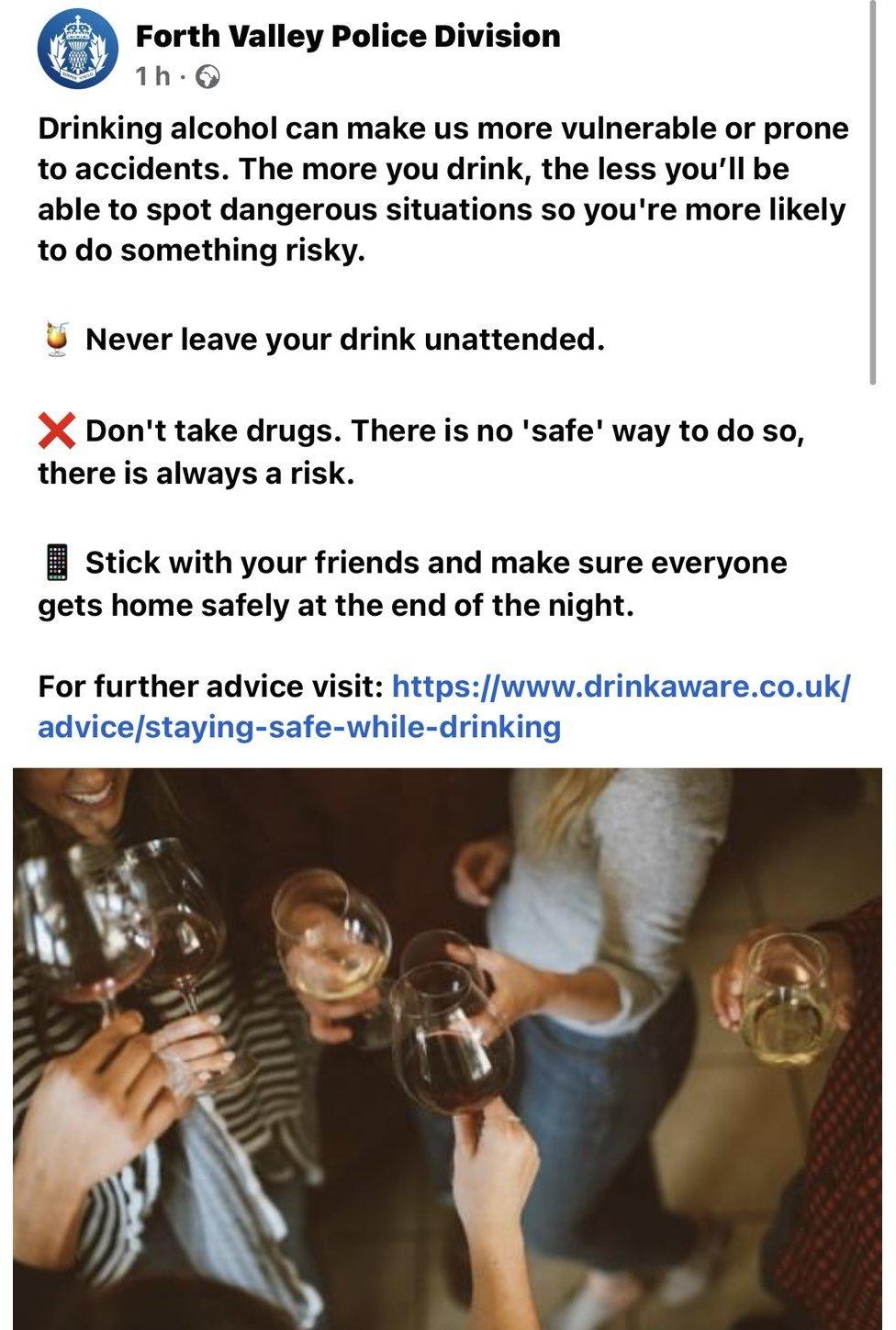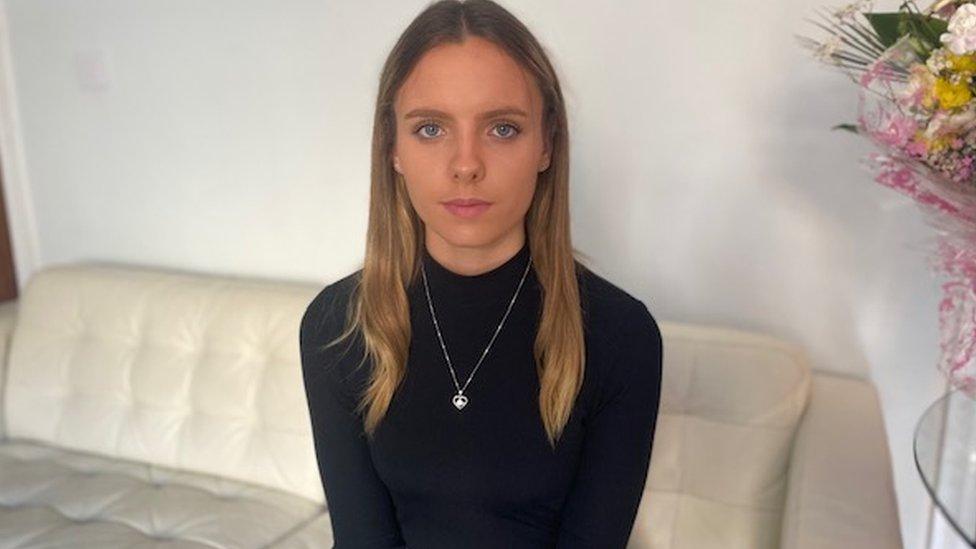Forth Valley Police sorry for 'victim blaming' drinking advice
- Published

Police Scotland has apologised after a social media post on drinking alcohol was described as victim blaming.
The Forth Valley division wrote on Facebook that "alcohol can make us more vulnerable" and gave advice on staying safe while drinking.
It followed an announcement that Police Scotland was investigating claims that women were spiked using injections.
After deleting the post, police said it did not reflect their commitment to blame "criminality on offenders".
Incidents of spiking using a needle have been reported in Edinburgh, Dundee, Glasgow and Aberdeen.

The original post, which has since been deleted, said "drinking alcohol can make us more vulnerable or prone to accidents".
"The more you drink the less you'll be able to spot dangerous situations so you're more likely to do something risky," it stated.
The message was accompanied by a photo of women drinking, and advised against leaving drinks unattended or taking drugs.
It added that people should "stick with your friends and make sure everyone gets home safely at the end of the night".
Allow X content?
This article contains content provided by X. We ask for your permission before anything is loaded, as they may be using cookies and other technologies. You may want to read X’s cookie policy, external and privacy policy, external before accepting. To view this content choose ‘accept and continue’.
Stirling MSP Evelyn Tweed tweeted that the message from local police was not "helpful".
"Everyone should feel safe to enjoy a night out without fear," she wrote, in response to a post claiming the police were "victim blaming rather than going after the perpetrators".
Divisional Commander for Forth Valley Division Alan Gibson said: "This was a well-intentioned post on social media which unfortunately does not reflect Police Scotland's well-established commitment to put blame for criminality on offenders.
"This message should not have been posted, it has been taken down and we apologise unreservedly for the concern and upset it has caused."
He added: "We will address the issue with the staff member involved."
Calls for nightclub boycott
Police Scotland confirmed on Wednesday that it was investigating spiking incidents involving injections, and a small number of reports had been made in the Edinburgh, Dundee, Glasgow and Aberdeen areas.
A spokesperson added: "These do not appear to be linked. We take all reports seriously and we would encourage anyone who believes they have been a victim of spiking in any form to contact police via 101."
About 140 spiking incidents have been reported to police forces across the UK over the past two months, 24 of them involving some kind of injection. Two arrests have been made in Nottingham as part of a spiking investigation.
In response, an online campaign for a "Girls' Night In" boycott of nightclubs has begun and there have been calls compulsory searches at nightclubs.
Police have investigated reports of drink spiking for years, although very few cases have been prosecuted.
Drugs used in drink-spiking are often referred to as "date-rape drugs", although they are not always used for sexual assault. Officers have previously said drinks are sometimes spiked "as a prank".
The National Police Chiefs' Council (NPCC) said several reports had been identified in England, Scotland and Wales in recent days.
The organisation's lead for drugs, Deputy Chief Constable Jason Harwin, said the majority of victims were young women but men had also been targeted, and alleged offences had happened at licensed premises and private parties.
Related topics
- Published20 October 2021

- Published20 October 2021

- Published20 October 2021
